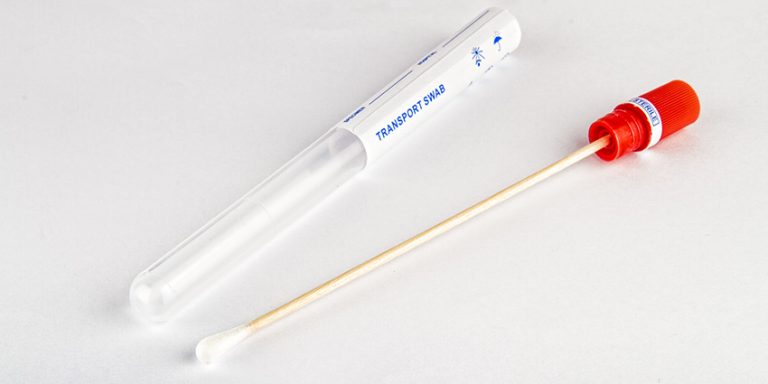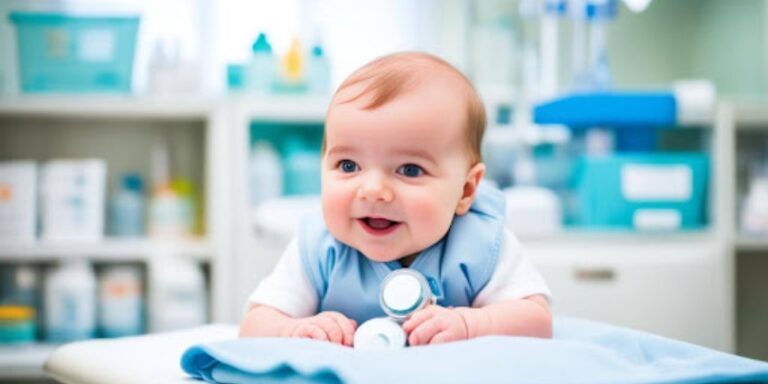Ever thought about why having a diet full of nutrients is very important when you’re pregnant?
Eating well during pregnancy is vital for a healthy you and baby. Boost your diet with nutrients like protein, iron, and folic acid. Add in some iodine and choline for good measure. These are great for your baby’s growth. Don’t forget about calcium, vitamin D, and potassium. They help keep you strong too.
Choose the right foods and stick to a well-rounded diet. Make sure you eat plenty of fruits, veggies, proteins, and grains. It’s also smart to watch your calories. Your needs change during each trimester. Make sure your diet fits your health goals.
Key Takeaways
- A nutrient-rich diet is vital for a healthy pregnancy.
- Increase intake of protein, iron, folic acid, iodine, and choline.
- Ensure sufficient levels of calcium, vitamin D, potassium, and fiber.
- Focus on a diet that includes whole fruits, vegetables, whole grains, proteins, and low-fat dairy.
- Adjust caloric needs by trimester and pre-pregnancy weight.
Introduction to a Healthy Pregnancy Diet
Many people think being pregnant means eating twice as much. But this isn’t true. You’re not just feeding yourself. You’re also nurturing your baby. For this, you need a lot of Balanced Nutrition.
Eating a mix of different foods every day is crucial for a Healthy Pregnancy Diet. It helps meet your body’s and your growing baby’s needs. Include fruits, veggies, grains, proteins, and dairy. They supply important vitamins and minerals. Plus, they keep you healthy.
Following the Eatwell Guide can help you in eating properly each week. Make sure your meals combine various food groups. This way, you get all the essential nutrients. Here’s a table to help you understand what a balanced diet looks like:
| Food Group | Example Foods | Benefits |
| Fruits and Vegetables | Apples, Carrots, Spinach | High in vitamins, minerals, and fiber |
| Whole Grains | Brown Rice, Oats, Whole-wheat Bread | Rich in essential carbohydrates and fiber |
| Lean Proteins | Chicken, Beans, Tofu | Vital for tissue growth and repair |
| Dairy | Milk, Yogurt, Cheese | Source of calcium and vitamin D |
| Healthy Fats | Avocado, Olive Oil, Nuts | Supports brain development and energy |
During pregnancy, quality beats quantity when it comes to food. Choose nutrition-packed meals over eating more. This way, both you and your baby stay healthy. Remember these tips to keep you from falling into the “eating for two” trap. Focus on the best nourishment for yourself and your baby.
Nutrient Requirements During Pregnancy
It’s really important to get all the right nutrients when you’re pregnant. This truth is not only for your health but for your baby’s as well. Things like vitamins, minerals, proteins, and good fats help your baby grow strong and healthy.
Essential Vitamins and Minerals
Getting enough vitamins and minerals is vital. They help prevent birth defects and boost your baby’s brain growth. Folic acid, iron, iodine, and choline are super important. Eating leafy greens, beans, and fortified cereals gives you folic acid. You and your baby need iron for carrying oxygen in your blood. Iron is in meats, nuts, and beans. Iodine, good for the thyroid, is in seafood and dairy. Then there’s choline for brain development, found in eggs and meats.
Protein and Healthy Fats
Protein is a must for growing fetal tissues and your baby’s brain. Think about adding lean meats, beans, lentils, and seafood to your meals. Healthy fats are just as important. Try nuts, seeds, avocados, and olive oil. Eating fish and flax seeds also gives you omega-3s, which are great.
Don’t forget about vitamin D and calcium for strong bones and teeth. Vitamin D helps your body absorb and use calcium. You can get it from milk, fish, and the sun. Calcium is in dairy, some plant milks, and dark leafy greens.
| Nutrient | Importance | Sources |
| Folic Acid | Prevents neural tube defects | Leafy greens, beans, fortified cereals |
| Iron | Maintains oxygen supply | Lean meats, nuts, legumes |
| Iodine | Supports thyroid function | Seafood, dairy, iodized salt |
| Choline | Essential for brain development | Eggs, lean meats, fish |
| Protein | Supports fetal tissue growth | Lean meats, beans, lentils, seafood |
| Healthy Fats | Critical for baby’s development | Nuts, seeds, avocados, olive oil |
| Vitamin D | Essential for calcium absorption | Fortified milk, fish, sunlight exposure |
| Calcium | Supports bone and teeth development | Dairy, fortified plant-based milks, leafy greens |
Managing Food Cravings
Feeling hungry and wanting certain foods is very normal during pregnancy. You might want sweet or salty snacks. While it’s okay to treat yourself here and there, choose healthy options as much as possible. This way, you and your baby get the best nutrition.
Healthy Alternatives
Instead of going for snacks high in fat and sugar, choose Healthy Alternatives. They can be just as tasty but better for you. Here are some ideas:
- Sweet cravings: Change up candy or chocolate for fruits like berries, apples, or bananas. They offer natural sweetness and vitamins.
- Salty cravings: Try whole-grain crackers or air-popped popcorn instead of potato chips. You still get that salty taste without the extra fat.
- Crunchy cravings: Go for carrot sticks, cucumber slices, or celery with hummus. It’s a crunchy, healthy option.
Mindful Eating Tips
Add Mindful Eating to your day which can make it easier to handle these cravings. Here are some suggestions:
- Pay attention to hunger cues: Check if you’re really hungry before meals. You might actually be bored or stressed.
- Portion control: Smaller plates can help you eat the right amount and avoid overeating.
- Chew thoroughly: Chewing slowly can make digestion easier and make you feel full quicker.
- Stay hydrated: Feeling hungry might mean you’re thirsty. Have some water first to see if you’re really hungry.
Pair Healthy Alternatives and Mindful Eating to curb your Food Cravings effectively. It also makes sure you stick to a good Pregnancy Nutrition plan.
| Craving | Typical Choice | Healthy Alternative |
| Sweet | Candy | Fresh Fruit |
| Salty | Potato Chips | Whole-Grain Crackers |
| Crunchy | Cookies | Veggie Sticks with Hummus |
Healthy Weight Gain During Pregnancy
Be aware of weight gain during pregnancy which is crucial for you and your baby. Your body will change as it supports new life. By eating well, you’ll get the right caloric intake for a healthy pregnancy.
Your caloric intake should go up a bit each trimester. Here’s a general idea:
Trimester | Caloric Increase |
| First Trimester | 0-200 calories/day |
| Second Trimester | 300-350 calories/day |
| Third Trimester | 450-500 calories/day |
How much you should gain depends on your weight before pregnancy. Generally, women are advised to gain this much:
- Underweight (BMI < 18.5): 28-40 pounds
- Normal weight (BMI 18.5-24.9): 25-35 pounds
- Overweight (BMI 25-29.9): 15-25 pounds
- Obesity (BMI > 30): 11-20 pounds
Follow these guidelines to help you have a healthy pregnancy. Monitor your prenatal nutrition. As your body changes and the baby grows, you will adjust your caloric intake. It helps you through this very crucial time.
Tips for Combating Morning Sickness
Dealing with morning sickness can be tough during pregnancy. But there are ways to ease the nausea. Efficient morning sickness remedies and changes to your pregnancy diet can help. They offer comfort and a good start to your day.
Morning Sickness Remedies
Many remedies can help with morning sickness. Eating dry, plain foods like toast and crackers in the morning may work. Also, ginger, whether it’s in tea, ale, or chews, can calm your stomach.
Sipping water little by little, not in big gulps, can also reduce nausea and keep you hydrated. Eat food slowly to aid your tolerance.
Foods to Avoid During Morning Sickness
Knowing what foods to avoid is vital when moms experience morning sickness. Foods like spicy dishes, acid-rich fruits, and fried or greasy items can make the situation worse. Limit caffeine and strong-smelling foods too, as they might trigger nausea. You may have a specific food that you should avoid since it consistently causes you to feel nauseous.
It’s a good idea to focus on non-citrus fruits, light proteins, and soft veggies in your pregnancy diet. These choices can help you feel better.
If you manage the nausea well, you have a better opportunity to enjoy a healthy pregnancy. By choosing the right foods to avoid and using effective morning sickness remedies, you can face this challenge with ease.
Diet and Pregnancy
When you prepare for Pregnancy, diet is a crucial consideration. It should be balanced to boost both your health and your baby’s growth. A Nutritional Guide for pregnancy should be rich in carbohydrates, proteins, and fats. Carbs are best from whole grains, fruits, and veggies for energy and fiber. You should limit processed carbs which are in the form of white flour, white rice, and white sugar. Proteins are needed for fetal tissue growth; getting them from lean meats, legumes, and dairy is great. Finally, aim for healthy fats, like the ones in fish and nuts, as they aid in brain development.
You will have the best of both worlds by pairing a healthy Pregnant Women Diet with prenatal supplements. These supplements often contain folic acid, iron, and calcium which helps your baby grow and keep you well. Folic acid guards against spinal defects, iron helps with more blood during pregnancy, and calcium ensures strong bones and teeth. A well-planned Dietary Guide during pregnancy ensures that both the mother and baby receive the necessary nutrients for optimal health.
Another important point is that moms need their food to be stored safely during pregnancy. Avoid raw or undercooked meats, unpasteurized dairy, and unwashed produce to dodge illnesses like toxoplasmosis. Be careful at home with food prep and hygiene which goes a long way to prevent foodborne sickness. Don’t eat food from restaurants that you are not sure that they are clean.
| Component | Key Sources | Benefits |
| Carbohydrates | Whole grains, fruits, vegetables | Energy and fiber |
| Protein | Lean meats, beans, lentils, dairy | Fetal tissue and placenta growth |
| Healthy Fats | Fish, nuts, seeds | Brain development |
| Prenatal Supplements | Folic acid, iron, calcium | Prevent neural tube defects, support blood volume, strong bones and teeth |
Nutritious Snack Ideas
Choose Nutritious Snacks that are tasty and quick during pregnancy. Here’s a list of creative snack ideas. Plus, we have easy recipes to keep you full of energy.
Healthy Snack Options
Adding Healthy Eating to your day is easy with these snacks:
- Fresh fruits like apples, bananas, and berries
- Vegetables with hummus or Greek yogurt dip
- Whole grain crackers with cheese or avocado
- Nut butter on whole-grain toast
- Low-fat yogurt with a sprinkle of nuts and seeds
Quick and Easy Recipes
Check out these Easy Pregnancy Recipes for snacks:
- Fruit and Nut Energy Bites: Mix dates, nuts, and oats in a food processor. Then, form them into balls and chill for energy on the go.
- Veggie Wrap: It’s simple. Put hummus on a whole-grain tortilla, add veggies, and roll. A yummy and satisfying snack.
- Greek Yogurt Parfait: Layer Greek yogurt with granola and berries. A tasty and healthy treat.
Use these Snacking Tips daily for a healthy diet. It ensures you and your baby get all nutrients. Then, there is no sacrifice of flavor or convenience.
Folic Acid Intake and Its Importance
A proper qmount of folic acid while pregnant is critical in preventing birth defects. It boosts your baby’s health by helping the neural tube develop. The neural tube is the embryonic beginning of the nervous system. This tube turns into the brain and spinal cord.
Foods Rich in Folic Acid
Eat foods high in folate to get enough folic acid. Below are some top sources:
- Leafy green vegetables like spinach and kale
- Beans and legumes such as black beans and lentils
- Citrus fruits including oranges and grapefruits
- Fortified cereals and bread
Include a mix of these in your meals every day. This combination will help your baby’s growth and keep you healthy during pregnancy.
Supplements and Recommendations
Though food is a good source, taking prenatal vitamins is also a smart addition to the regimen in pregnancy. Pregnant women should aim for at least 400 micrograms of folic acid daily. This dose is advised by the Centers for Disease Control and Prevention (CDC). When you’re getting ready to conceive or already pregnant, maintain consistent supplementation to prevent birth defects.
Check out the table below for prenatal vitamins with folic acid:
| Brand | Folic Acid Content (micrograms) | Other Key Ingredients |
| Nature Made | 800 | Iron, Vitamin D, Calcium |
| One A Day | 800 | Iron, Omega-3 DHA, Calcium |
| Prenatal Multi + DHA | 600 | Iron, DHA, Vitamin C |
| Garden of Life | 800 | Probiotics, Iron, Zinc |
By taking these supplements along with eating folate-rich foods, you’re on track for a healthy pregnancy. This plan ensures you and your baby get the needed nutrients.
Challenges with Gestational Diabetes
Expecting moms with gestational diabetes need a diabetes diet for their and their baby’s health. They must learn to control blood sugar levels through what they eat.
Dietary Guidelines
Important steps to keep blood sugar in check include eating high-fiber foods. This high fiber diet includes lots of whole grains, fruits, and veggies. Also, you should focus on lean proteins, good fats, and watch your carb intake. A regular meal schedule helps. Be careful with portion sizes to help control blood sugar when you’re pregnant.
Here’s an example of a daily eating plan when dealing with diabetes and pregnancy and gestational diabetes:
| Meal | Food Options |
| Breakfast | Oatmeal with berries, Greek yogurt, and nuts |
| Mid-morning Snack | Apple slices with almond butter |
| Lunch | Grilled chicken salad with quinoa, mixed greens, and an olive oil dressing |
| Afternoon Snack | Hummus with carrot and cucumber sticks |
| Dinner | Baked salmon with steamed broccoli and sweet potato |
Healthy Recipes
Looking for easy meal ideas? Try these great healthy pregnancy recipes that follow a gestational diabetes diet:
- Quinoa and Black Bean Salad: Mix quinoa, black beans, tomatoes, and corn. Add lime juice and cilantro.
- Lean Turkey and Vegetable Stir-Fry: Stir-fry turkey, broccoli, peppers, and snap peas in a soy-ginger sauce.
- Avocado and Egg Toast: Spread avocado on toast, top with a poached egg, salt, pepper, and lemon.
Following these dietary guidelines and recipes helps. It keeps your blood sugar levels under control, making for a healthy pregnancy with gestational diabetes.
Preparation for Breastfeeding Through Diet
To start breastfeeding well, it’s smart to think about what you eat. A Breastfeeding Diet full of things like calcium, iron, and protein is important. This quality of diet is good for the mom and helps make sure your milk is as healthy as can be. Eat foods that are full of what your body and your baby need.
When you’re breastfeeding, moms should mix it up with your meals. Add a little bit of everything from different food groups. This way, you get all the nutrients you and your baby need. Make sure to have plenty of lean proteins, veggies, and dairy. They provide the calcium and iron you need. Plus, they give you the energy to keep up with your baby’s growth.
Think about these key things for your Lactation Diet:
- Calcium: Needed for strong bones; you’ll find it in yogurt, cheese, and greens.
- Iron: Helps prevent feeling tired and worn out; eat meats, beans, and fortified cereals.
- Protein: For fixing your body and making milk; enjoy fish, poultry, eggs, and beans.
- Hydration: Drink lots of water to make milk and stay healthy.
Using these tips can keep you feeling good and give your baby enough to eat. This knowledge sets you up for great success with breastfeeding.
Foods to Avoid During Pregnancy
Eating well during pregnancy is crucial. It is also important to avoid certain foods and drinks. You should steer clear of high-risk items to keep your baby healthy. Be careful with what you eat and drink for both your baby’s and your own safety.
High-Risk Foods
Some foods pose big risks, especially for your baby’s health. Check out this list of pregnancy food dangers:
| High-Risk Food | Reason to Avoid | Safe Alternatives |
| Unpasteurized Dairy | Risk of listeria infection | Pasteurized dairy products like milk and cheese |
| Certain Fish (e.g., Shark, Swordfish) | High mercury levels | Low-mercury fish like salmon and tilapia |
| Raw or Undercooked Seafood | Risk of foodborne illness | Cooked seafood options |
| Deli Meats | Possible listeria contamination | Freshly cooked meat |
| Raw Eggs | Risk of salmonella | Fully cooked eggs |
| Unwashed Produce | Potential pesticide residue and bacteria | Washed and peeled fruits and vegetables |
Beverages to Limit or Avoid
Be careful with what you drink is just as important. Some beverages are risky during pregnancy:
- Caffeine: Keep your caffeine under 200 mg a day to stay safe. Try decaf coffee or herbal teas.
- Alcohol: The best choice is no alcohol at all. It can harm your baby’s health.
- Unpasteurized Juices: Avoid them because they can make you sick. Opt for pasteurized juices instead.
With the right choices in food and drink, you help make your pregnancy safer. This benefits both you and your baby.
Conclusion
The beginning of your pregnancy journey is truly special. It’s vital to eat well for your health and your baby’s growth. A healthy eating summary shows how important it is to get nutrients like protein, iron, calcium, and vitamins in every meal. Pick foods that are full of nutrients to help your body and your baby.
Eating right means planning carefully and carefully considering your choices. This approach helps manage things like food cravings and morning sickness. The pregnancy nutrition recap reminds us to be aware of our food. It advises choosing healthy options and following dietary tips. This guidance is vital, especially to handle conditions such as gestational diabetes.
Also, following these tips makes breastfeeding easier later on. It will contribute to good beginnings and lifelong health to you and your child. Enjoying a healthy pregnancy is more achievable when you make smart food choices. Keep focused on getting the nutrition you need. This way, you start your journey to joyful parenthood on the right foot.
FAQ
What are the essential vitamins and minerals I need during pregnancy?
During pregnancy, it’s crucial to get folic acid, iron, iodine, and choline. These support your baby’s brain development and prevent birth defects. Don’t forget about calcium and vitamin D for strong bones.
How can I manage food cravings during pregnancy?
To handle cravings, go for healthy options like fruit and whole-grain crackers. Also, veggies with hummus. Eat mindfully and watch your portion sizes to keep cravings in check and your diet balanced.
What is considered healthy weight gain during pregnancy?
Healthy weight gain changes with your pre-pregnancy weight. Aim for steady gains, adjusting your food intake each trimester. This ensures you and your baby get the nutrients you need.
What are effective remedies for morning sickness?
To ease morning sickness, try eating frequent, small meals. Stick to bland options like dry toast and crackers when you don’t feel the best. Also, avoid triggers like greasy or spicy foods and caffeine.
Why is folic acid important during pregnancy?
Folic acid is critical to preventing birth defects in your baby. Aim for 400-800 micrograms daily through supplements and foods like leafy greens and beans.
What are the dietary guidelines for managing gestational diabetes?
For gestational diabetes, eat a balanced diet. This diet focuses on whole grains, proteins, and lots of veggies. Keep an eye on carbs and eat your meals evenly throughout the day for stable blood sugar.
How should I prepare my diet for breastfeeding?
To get ready for breastfeeding, eat a nutritious diet. Make sure to include calcium, iron, and protein. A good diet helps your baby and you by providing enough milk.
Which foods should I avoid during pregnancy?
Be cautious of unpasteurized dairy, high-mercury fish, and deli meats. Cut back on caffeine and skip alcohol altogether. This dietary initiative preserves your baby’s health during development.










